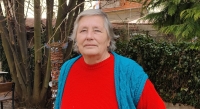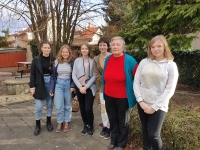Comrades, I have forty children, I cannot join the party
Download image
Marcela Jirásková was born on August 4, 1952 in Prague, but she spent her entire childhood in Slané, where her father, a chimney sweep, got a service apartment. She learned horticulture and wanted to continue her studies at university, but the school principal did not give her a recommendation. She spent August 1968 in Černuč and Kralupy nad Vltavou helping to distribute anti-occupation newspapers. In 1980, when she was at home with her young daughter, she started leading the free-time science club Javory for children, which still operates today. She refused to join the Communist Party of the Czech Republic and was interrogated by the StB due to accusations of influencing the youth. In 2022, she lived in the village of Černuc in the region of Kladno.

